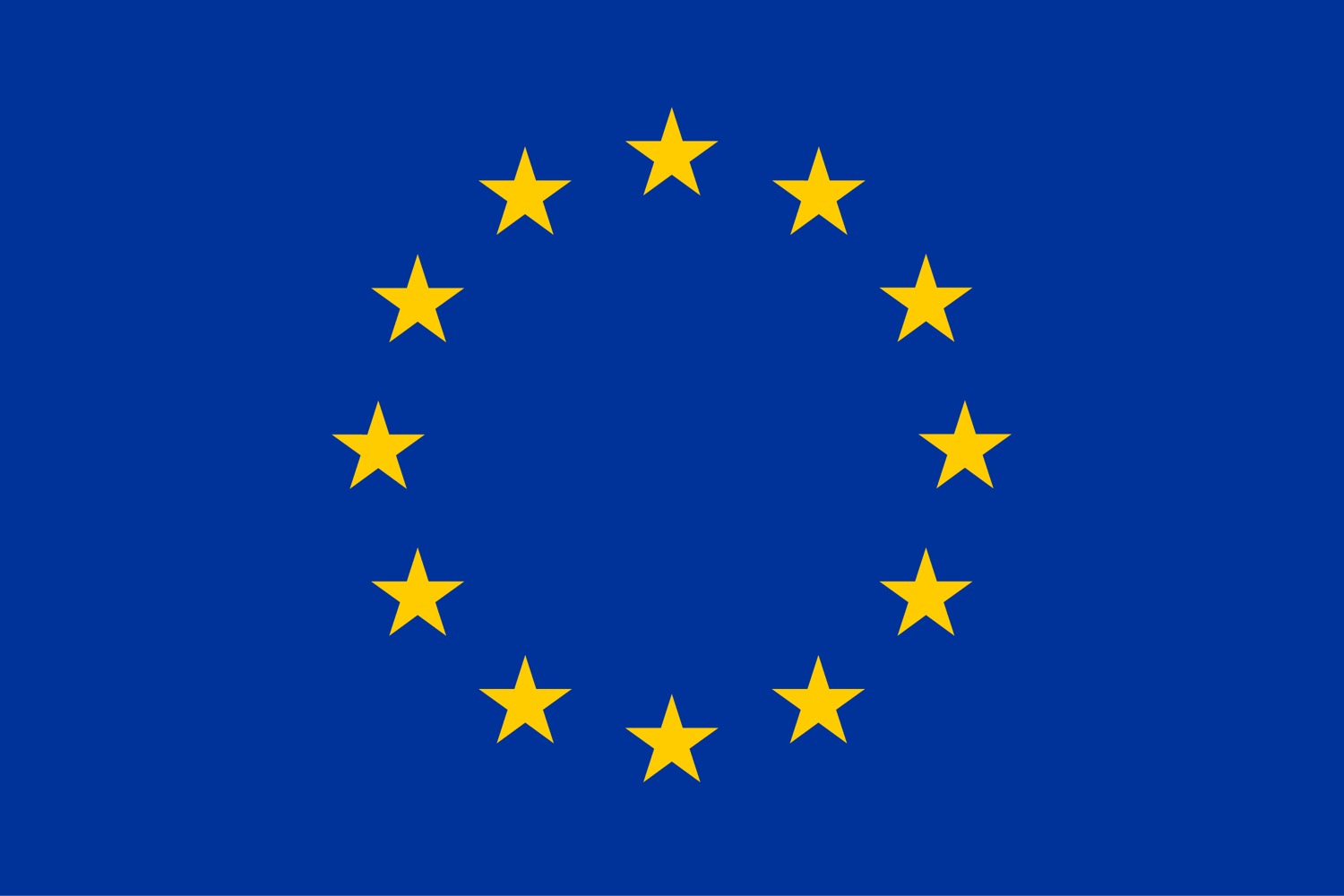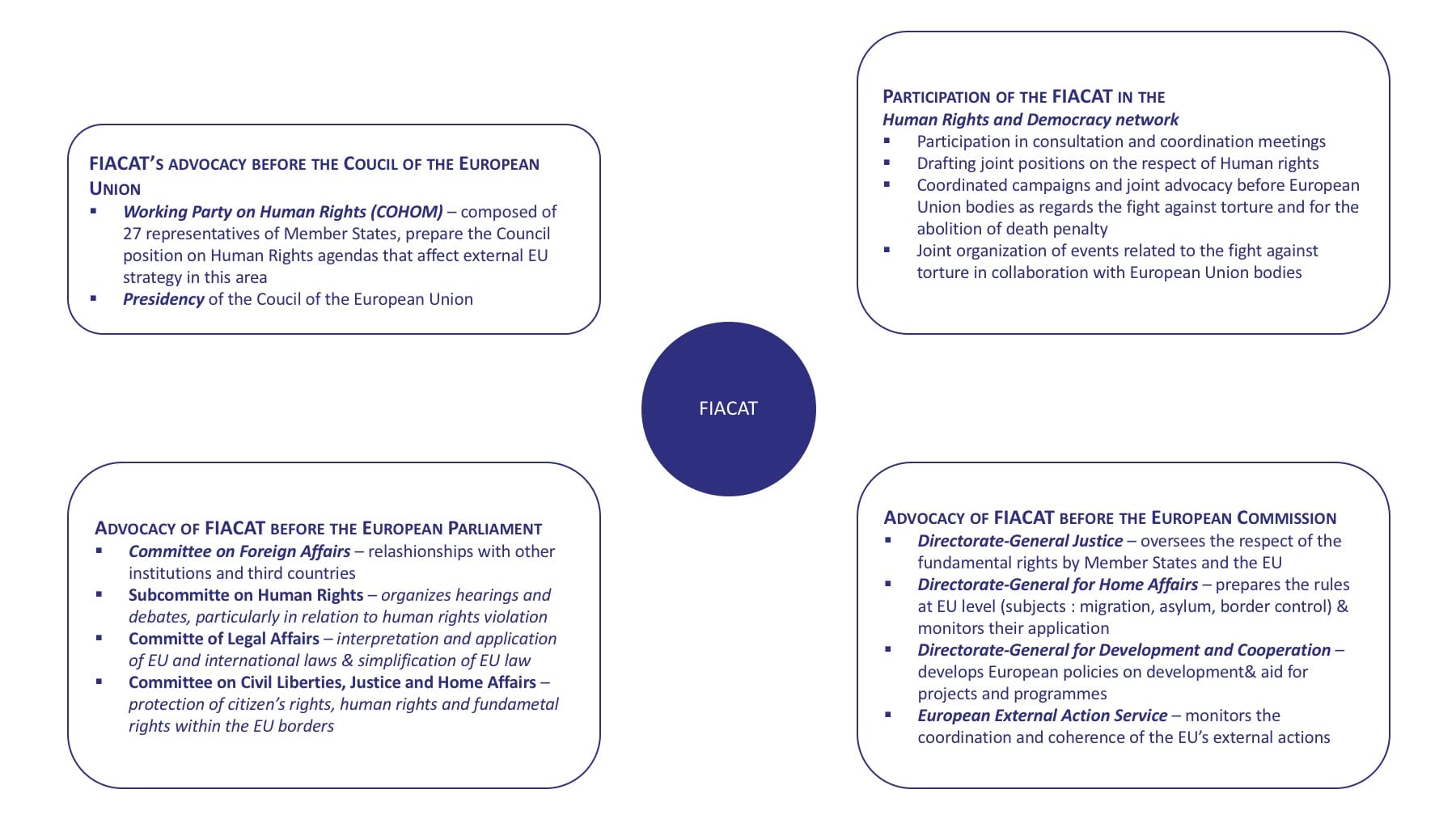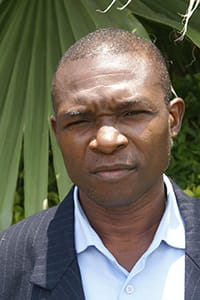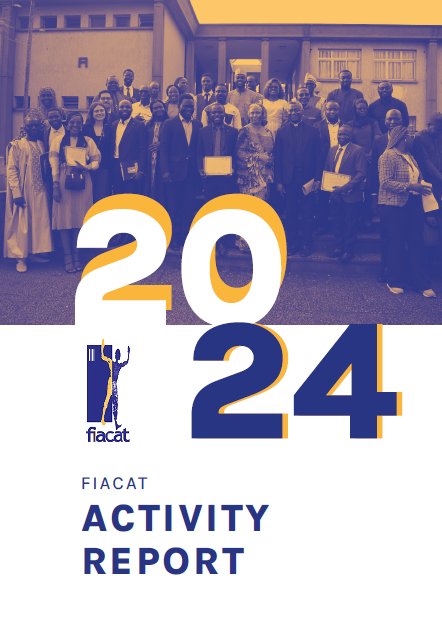
European Union

One of the objectives of the European Union is to promote Human rights, both within the Union and worldwide. The fundamental values of the EU are human dignity, freedom, equality, the rule of law and respect for Human rights. On the signing of the Treaty of Lisbon, all these rights were brought together in one single document: The Charter of Fundamental Rights of the European Union. European institutions have a legal obligation to respect the Charter, as do all Member States, when implementing European Union law.
The protection of Human rights around the world is a challenge that the European Union cannot tackle alone. The ACATs and FIACAT play a crucial role in the respect of the fundamental rights, primarily as regards combating torture. ACATs affiliated with FIACAT, as actors on the field, are best placed to gather information and identify national and regional priorities.
FIACAT participates in advocacy activities before European Union bodies, expressing the concerns of its members, in particular:
- The Committees and Delegations of the European Parliament and in particular its Subcommittee on Human Rights (DROI) under the Committee on Foreign Affairs (AFET), the Committee on Legal Affairs (JURI) and the Committee on Civil Liberties, Justice and Home Affairs (LIBE).
- The departments of the European Commission, in particular the European External Action Service (EEAS), the Directorate-General (DG) for International Cooperation and Development (DEVCO) and Directorate-General for Justice (DG JUST) which oversees the respect of the fundamental rights at the national level, by the EU and all Member States;
- The Council's Working Party on Human Rights (COHOM) when it discusses issues related to mistreatment, torture, the abolition of the death penalty and the removal of immigrants to countries that commit torture. The Working Party on "Fundamental Rights, Citizens Rights and Free Movement of Persons" which deals with issues related to The Charter of Fundamental Rights of the European Union and negotiations on the accession of the EU to the European Convention on Human Rights (ECHR).
FIACAT works to achieve the effective implementation of the . It promotes and encourages the adoption of these Guidelines by actors on the ground.
These different activities, relating to advice, expertise, advocacy and the implementation of European regulations, through the participation of FIACAT, are an opportunity for all ACATs to share their perspectives on the various situations of non-compliance of Human rights that they encounter in their countries. FIACAT acts as the spokesperson for its members concerns, as regards combating torture and mistreatment, before the European institutions and FIACAT's partners.
FIACAT also participates in an NGO platform, the Human Rights Democracy Network (HRDN), in order to ensure that the fight against torture is at the heart of the EU's internal and external policy agenda. This vision should be realized in an EU that effectively protects Human rights within its borders and acts as a force for positive change worldwide. In pursuit of this objective, FIACAT and the NGO network aim to influence the policies and laws of EU Member States and the allocation of resources in financing instruments for the promotion of democracy, Human rights and peace.

Testimony :
 "This forum was a great opportunity for civil society throughout the world and at the same time an opportunity to recognise and reaffirm the universal values which have long been upheld by the European Union, such as human rights, democracy, justice, combating impunity, solidarity, good governance, peace and development."
"This forum was a great opportunity for civil society throughout the world and at the same time an opportunity to recognise and reaffirm the universal values which have long been upheld by the European Union, such as human rights, democracy, justice, combating impunity, solidarity, good governance, peace and development."
Bernard Katumba Ntite, President of ACAT DRC



